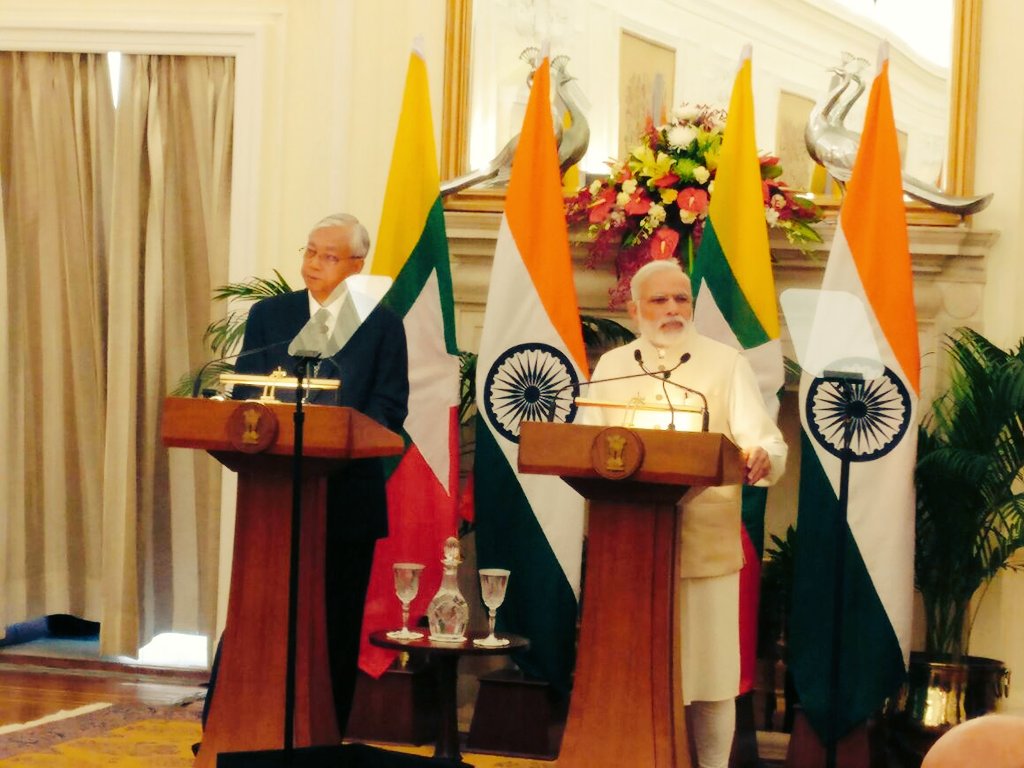-
Tips for becoming a good boxer - November 6, 2020
-
7 expert tips for making your hens night a memorable one - November 6, 2020
-
5 reasons to host your Christmas party on a cruise boat - November 6, 2020
-
What to do when you’re charged with a crime - November 6, 2020
-
Should you get one or multiple dogs? Here’s all you need to know - November 3, 2020
-
A Guide: How to Build Your Very Own Magic Mirror - February 14, 2019
-
Our Top Inspirational Baseball Stars - November 24, 2018
-
Five Tech Tools That Will Help You Turn Your Blog into a Business - November 24, 2018
-
How to Indulge on Vacation without Expanding Your Waist - November 9, 2018
-
5 Strategies for Businesses to Appeal to Today’s Increasingly Mobile-Crazed Customers - November 9, 2018
Myanmar’s Panglong conference agrees to start political dialogue
Peace and national reconciliation are vital to establishing a democratic federal union, said Myanmar’s State Counsellor Aung San Suu Kyi at the opening of the 21st century Panglong peace conference in the capital Nay Pyi Taw on Wednesday (Aug 31).
Advertisement
While the conference has been billed as the most comprehensive attempt so far to resolve long-running conflicts between Myanmar’s numerous ethnic groups and the military, Suu Kyi has been able to build on efforts by the previous administration of President Thein Sein, which signed a nationwide ceasefire agreement last October with eight out of 16 ethnic groups involved in earlier peace talks.
Delegates in elaborate ethnic costumes, sporting silver necklaces and hats adorned with peacock feathers, mingled and took photographs with military officers, mainstream majority Bamar politicians and diplomats at the start of the conference.
“It’s the Tatmadaw [military] members and our brethren members of ethnic armed groups, who have been directly suffering from all bad impacts of wars resulting from the lack of peace in the country, sacrificing their limbs and lives”.
“If Suu Kyi is able to find a common ground between the representatives of ethnic groups, Myanmar’s military and the government, then it would be a historical achievement”, Marco Bünte, an associate at the GIGA Institute for Area Studies and professor at Malaysia’s Monash University, told DW.
Visiting United Nations Secretary-General Ban Ki-moon was the only worldwide representative who addressed the participants.
However, Ms Suu Kyi pointed out that the ceasefire agreement is not just about achieving peace, but signifying the first step towards building a democratic federal union.
“Only if we are all united will our country be at peace”.
Wednesday’s meeting comes nearly 70 years after Suu Kyi’s father, independence hero Aung San, signed a landmark agreement to devolve powers to some ethnic groups after independence.
Attendees observe during the 21st Century Panglong Conference in Naypyitaw, Myanmar, 31 August 2016. “You owe it to them to work for a better tomorrow”, he said. “It is as though there will be no end to the talks until we reach a union accord perhaps in 2019 or 2020”.
Beyond political discussions, the parties to the talks will eventually discuss how to share natural resources like gas, minerals, and timber between the state and the ethnic regions where they are abundant.
Earlier on Tuesday, the United Nations chief had said Myanmar’s stateless Rohingya should be given the right to citizenship after generations of living in the country. Among others, top lawmakers and ethnic leaders also pledged to support the aims of the conference.
On Tuesday, Ban indicated his support for the Myanmar government’s creation of an advisory commission, headed by his predecessor at the U.N. Kofi Annan, to address human rights issues in the country’s western Rakhine state where about 1.1 million Rohingya Muslims face persecution.
Advertisement
Other members of civil society organizations and women’s groups in particular were present at the conference as observers, despite not being invited as stakeholders.





























